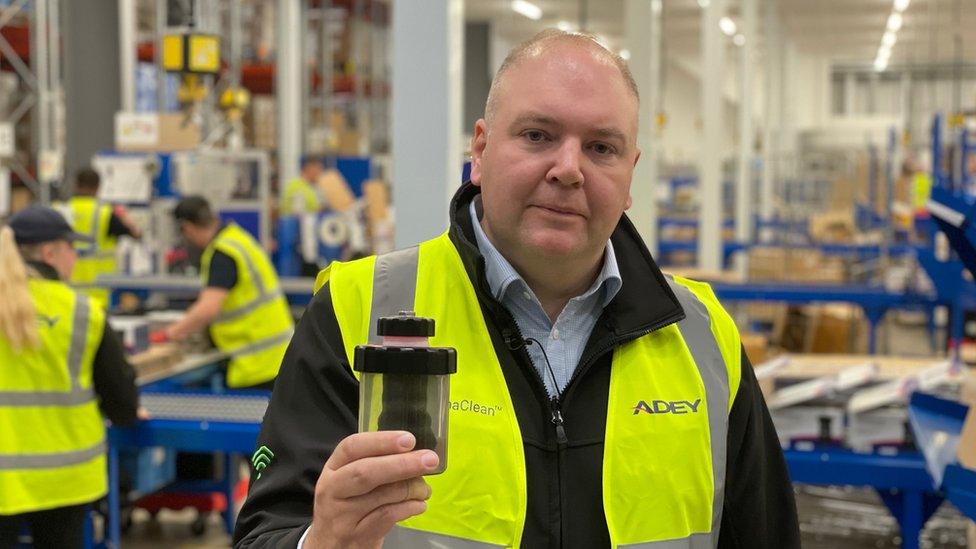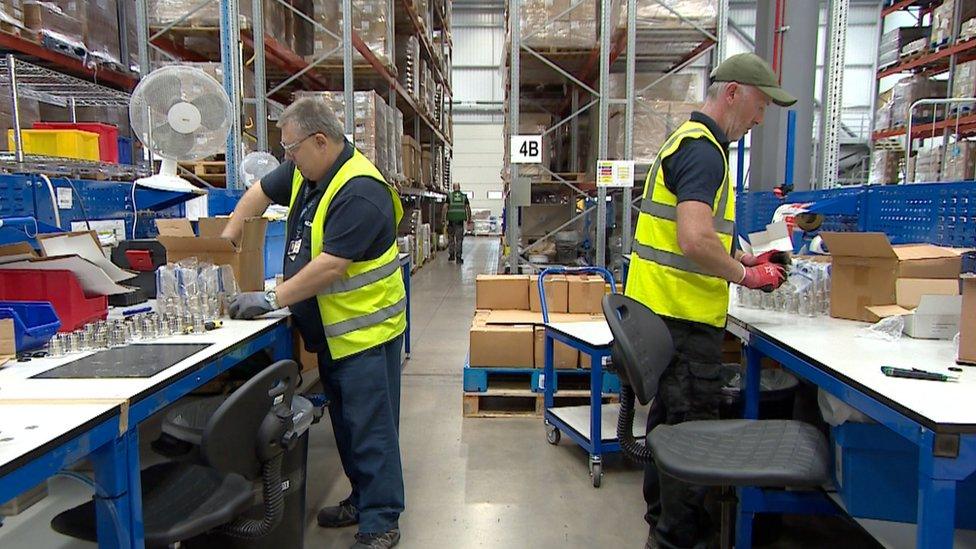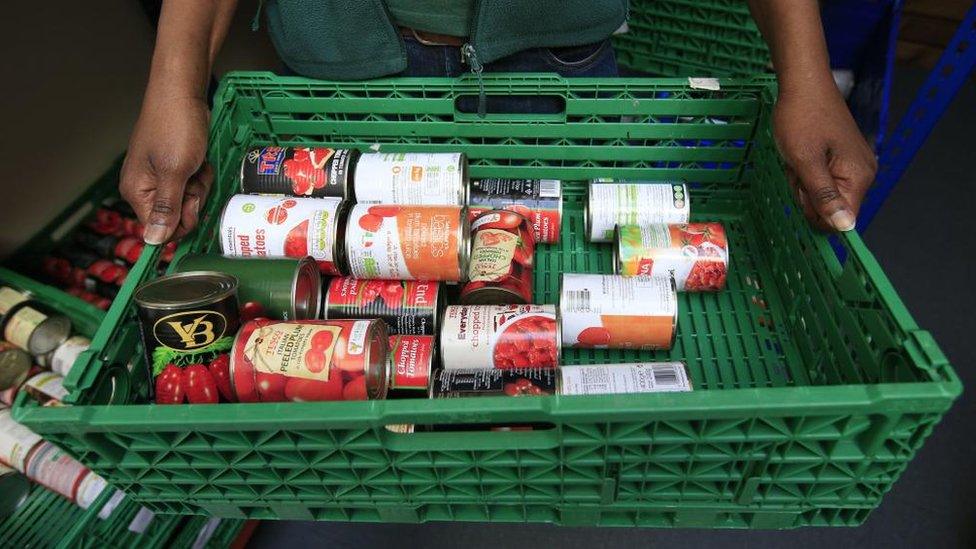Gloucestershire energy-saving firm facing soaring energy costs
- Published

His gadget saves people energy, but Matthew Webber's own electric bill is soaring
Three quarters of companies in the west country are worried about rising costs, according to a new survey.
Business West heard from more than 400 small firms, and 73% told them inflation was their number one worry.
Even a company that makes energy-saving gadgets is facing rising energy bills of its own.
As official statistics record inflation at 10.1%, their story is typical of the squeeze that many small firms are facing.
Their costs are rising, but they know their customers have less money, so it is hard to put up prices.
Matthew Webber was smiling, nonetheless, when I met him in the new purpose-built factory off the M5 in Gloucestershire.
The company he runs is successful, and has surely the perfect product for an energy crisis.

Adey Innovation is a large employer in Gloucestershire
Inside most domestic boilers and radiators swirls a dark black sludge. Metal shavings from the insides of pipes mix with other dirt to slow up the boiler, and even cause breakdowns.
Twenty years ago Chris Adey, a heating engineer, invented a new filter in his garden shed. It uses a magnet to suck all the metallic gunge out of the water in a central heating system.
His idea has been widely copied, but the original products made in Gloucestershire still sell well. In an energy crisis, the company says their filters save customers money, and potentially expensive breakdowns.
But ironically the company itself faces soaring energy bills of its own.
'We're taking a hit'
Matthew Webber now runs Adey Innovation, and told me their energy bill had risen "like every other household and business in the country."
He said, "We're always looking at smarter ways to produce our products, but the reality is we're having to take the hit on these increased prices."
Rising gas, electric and fuel bills are the main engine driving up inflation in the British economy, according to the ONS figures out today.
But they are not the only factor. As the Pound fell in value on international money markets, many of the components used in the Gloucestershire factory went up in price.
Mr Webber explained: "We spend over $20m a year on components from abroad, so the weakening pound has really had an impact on us."
Can they pass on all these rising costs? No, he tells me, they know their customers are short of money too, and "we do face international competition, so we just have to take the hit."
This is typical of the dilemma facing most small firms at the moment. In the survey for Business West, hundreds told of worries over rising prices - and falling sales.

"Inflation is the no 1 worry for companies now", said Claire Ralph, Policy Manager at Business West
Claire Ralph, Policy Manager at Business West, explained: "Businesses are telling us they're stuck in a bind.
"Do they pass on those costs to consumers, and lose sales, or try to absorb them - which is not sustainable in the long run?"
Many companies I speak to tell me this is a daily challenge: Rising costs, rising interest rates, and customers wanting lower prices.

Follow BBC West on Facebook, external, Twitter, external and Instagram, external. Send your story ideas to: bristol@bbc.co.uk , external
Related topics
- Published18 October 2022

- Published19 October 2022

- Published19 October 2022
